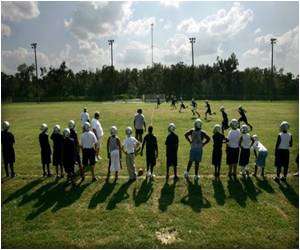Teens with a history of concussions are more than three times as likely to suffer from depression, than those who have never had a concussion, suggests a new study.

Concussion, considered a mild traumatic brain injury, can also have serious psychological effects.
Most prior research on these psychological effects has focused on adults.
However, many teens experience concussions through sports injuries or accidents, and less is known about long-term complications in adolescents.
The study used data from the 2007-2008 National Survey of Children's Health and included health information from over 36,000 adolescents ages 12 to 17. 2.7 percent of the sample had had a concussion and 3.4 percent had a current depression diagnosis.
Teens who were 15 years or older, lived in poverty or who had a parent with mental health problems were more likely to be depressed than other teens, Chrisman said.
Advertisement
Chrisman also cautioned that it's not known what exactly might account for higher rates of depression in teens with a history of concussion. It could be the brain injury itself, diagnostic bias due to repeated medical visits for concussion, doctors mistaking symptoms of a concussion for depression, or from the social isolation that they may experience while recovering.
Advertisement
Source-ANI















